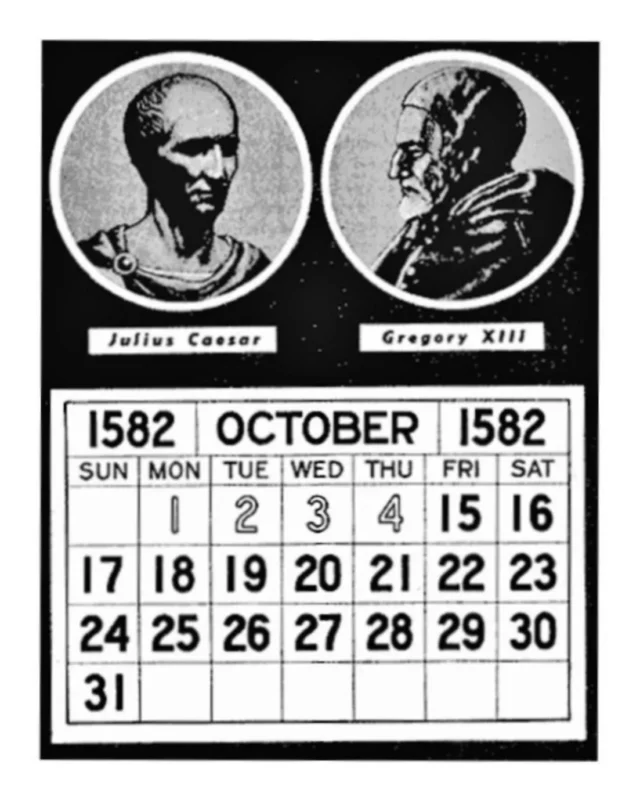
In October 1582, ten days were skipped in the Western world. This strange occurrence happened due to a major shift in the way time was measured, from the Julian calendar to the Gregorian calendar. The reason for this change was to align the calendar with the actual length of a year, which is approximately 365.2422 days. The Julian calendar, which had been in use since 45 BCE, calculated a year as exactly 365.25 days, causing a significant error to accumulate over time.
Pope Gregory XIII announced the change to the calendar in 1572, but it took several years for it to be adopted across Catholic countries. It was finally implemented in October 1582, with ten days skipped in Italy, Spain, Portugal, and their colonies. The change was met with confusion and resistance by some, as they believed that the ten days had been stolen from them.
The shift from the Julian calendar to the Gregorian calendar wasn’t just about skipping ten days. It also required changes in the calculation of leap years. In the Julian calendar, a leap year occurred every four years, while the Gregorian calendar adjusted this rule to exclude years divisible by 100 but not by 400. This change ensured that the average length of a year in the Gregorian calendar was closer to the actual length of a year.
The ten skipped days in October 1582 had far-reaching consequences, including confusion in historical dating. Documents and records that predated the calendar change had to be adjusted to reflect the new date, resulting in some confusion and discrepancies in historical records. For example, Christopher Columbus arrived in the New World on October 12, 1492, according to the Julian calendar. However, when the Gregorian calendar was adopted, the date of his arrival was adjusted to October 21, 1492, to account for the ten-day difference.
The change to the Gregorian calendar was not immediately adopted by all countries. Protestant countries, including England, rejected the change and continued to use the Julian calendar for several more decades. As a result, different countries had different dates for a period of time, leading to further confusion.
Today, the Gregorian calendar is the standard calendar used by most of the world, with only a few exceptions. Its accuracy in measuring time has ensured that it has remained in use for over four centuries. While the ten days skipped in October 1582 may seem like a strange event, it was an important step towards aligning our understanding of time with the reality of the universe.
In conclusion, the ten days skipped in October 1582 were not the result of a supernatural event or a conspiracy. They were simply a necessary adjustment to the calendar to ensure that it remained accurate over time. The shift from the Julian to the Gregorian calendar was a major undertaking, with long-lasting effects on the way we measure time. It’s a reminder that even our most basic assumptions about the world, such as the length of a year, can change over time as our understanding of the universe evolves.








